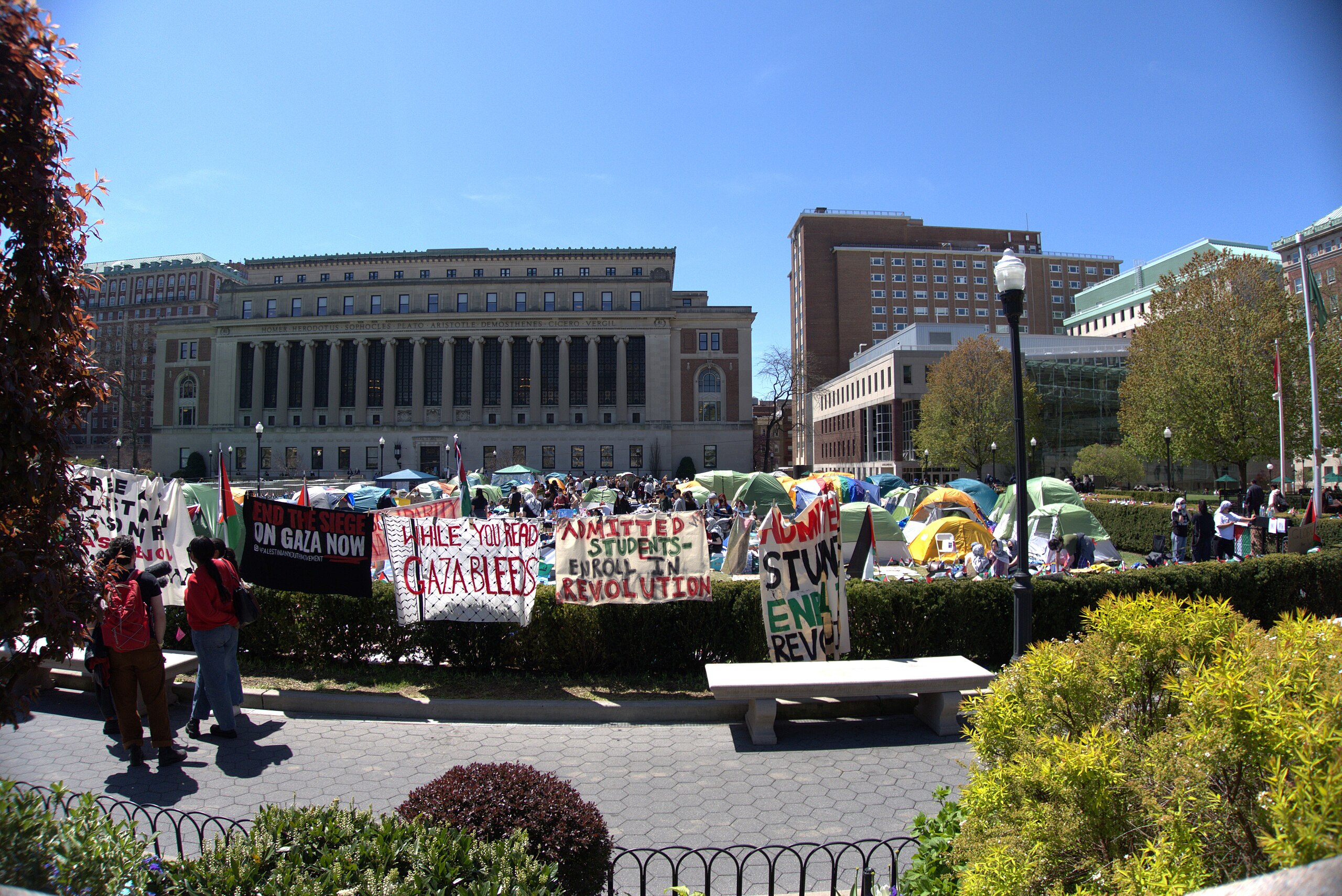Tuesday, April 23, 2024
It has been widely reported that the student encampment at Columbia University was “disruptive.” I heard, in the days following their arrests, that they were too loud. I heard this from my colleagues and reported in the media. This broke a rule, apparently. They were so loud that learning could not continue. In fact, when the encampment was first set up on Wednesday, I did not know the tents were there until I exited the library where I work. I was surprised when I stepped into the sunlight and saw the South Lawn covered in multicolored tents and signs. I was surprised because I could not hear them from inside the library. When I walked through Lerner Hall and the Journalism School, later that day, I could not hear them. When the arrests began the next day, I did not know they were happening until I was outside, because again, I could not hear anything.
On Thursday, the only people speaking were the police, through loudspeakers, and the crowd that surrounded the encampment. The students on the lawn were seated and silent. They were surrounded by cops in riot gear, and still they held their silence. If they made a sound when they were marched out, one by one, and arrested, I did not hear it over the chants of the onlookers. We chanted many things, but mostly we chanted the word shame. We were students, staff, and teachers. We spoke the word shame, and we felt shame.
The noise did not prevent learning or work. It is important to say this, not because all protests should be silent, but because this one mostly was, and they were labeled disruptive anyway.
The next morning, I arrived on campus early. I saw that the encampment had regrouped on the opposite lawn. Once again, their silence was startling. It seemed to be a silence borrowed from night. They spoke and prayed, yes, but tranquility had seized the lawn. They were not loud, and they were also not meek. The fact that they gathered without breaking the peace of the day was remarkable. Their reliance and the clearness of their intentions was loud. Their immovability was very loud.
On Monday I sat under a tree near the lawn. The silence of the encampment was emphasized by the chanting that occasionally came from outside campus. These chanters were not students, and they had not been arrested. To conflate the students on the lawn with these people was wrong. It is still happening, and it is still wrong. They are separated by a steel gate and countless police officers. I can’t say what happened before I arrived on campus, or after I left. But I know that Columbia is generally a loud campus, and so the buildings are constructed to block noise. I know when the new president was inaugurated last year, in the middle of the day, no one complained, and no one claimed to hear it inside of classrooms. I know on that warm Monday, I was sitting so close to the students, and all I could hear was the forcefulness of their quiet.
I searched news articles all week for any source to correct the idea that they had been overwhelmingly loud. Rarely I saw someone hint that the protests were not as extreme as suggested. Rarely I saw someone clarify that certain chants had come from people outside the gates. But no one mentioned the way a hush fell over a crowd so large that it should have been raucous. They had other ways of catching our attention. The noise did not prevent learning or work. It is important to say this, not because all protests should be silent, but because this one mostly was, and they were labeled disruptive anyway. To say that they were not disruptive helps us look for the real reasons as to why the police were called. There are many. One is as insubstantial as leadership’s desire to set up bleachers for commencement. Which, it must be said, is a tremendously loud activity. So, for me, it is vital to remember that I did not know what was happening on Thursday as I was busy working. I did not know something irrevocable was taking place. ![]()
Emily is a staff member at Columbia University.

